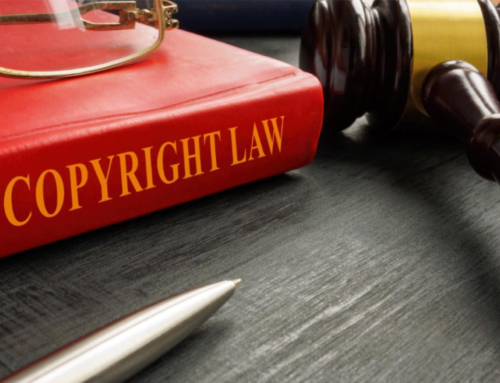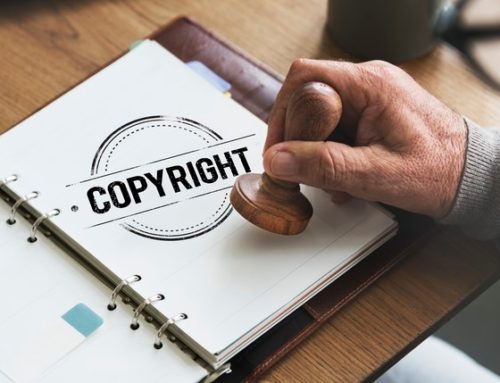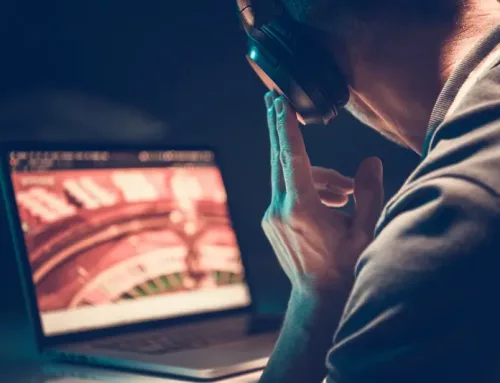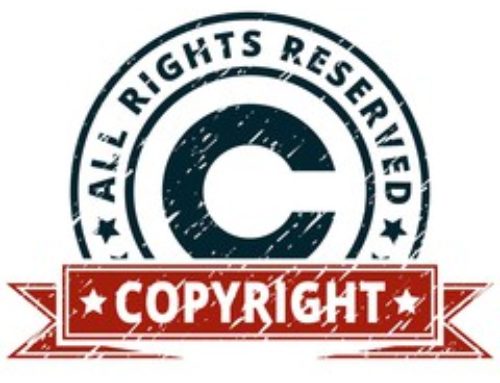In the creative industry, it’s important to know when your work draws inspiration from another and when it infringes on copyright-protected material. Misuse of another’s content or copyright material with no authorization is known as copyright infringement. It has both civil and criminal penalties.
In other words, an infringer can be sued civilly by the copyright owner and charged criminally by a prosecutor.
In this article, we’ll give you a basic summary of how copyright infringement works and the implication of using copyrighted materials without permission. If you want to learn more, our experienced Washington D.C. IP attorney has written an in-depth guide on intellectual property issues such as piracy or trademarks entitled “Find Clarity and Take Control of Your Intellectual Property.” Call us now to get a free copy!
Understanding Copyright Infringement
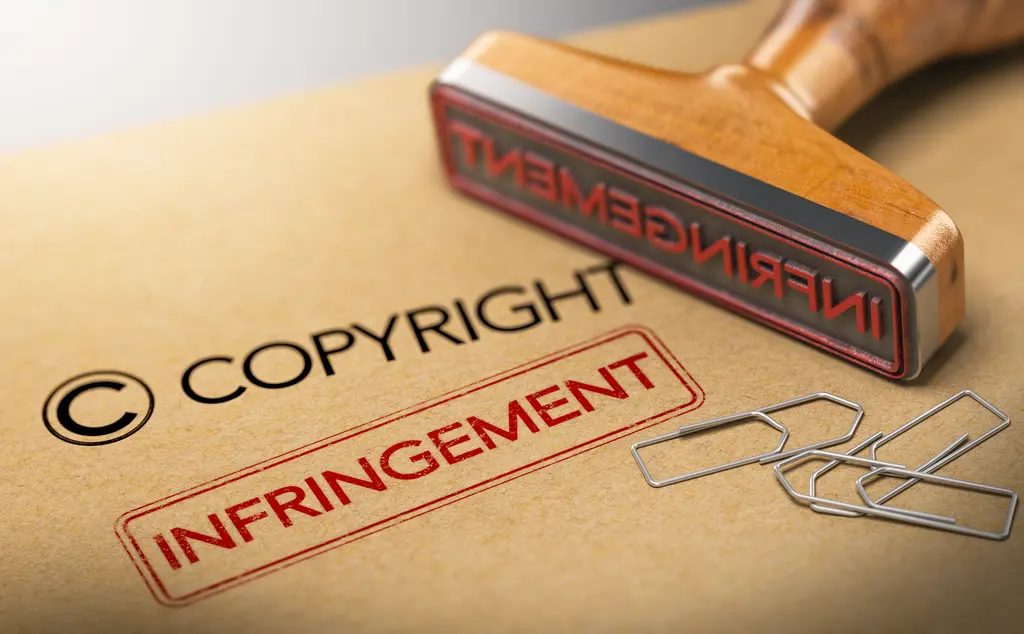 A work is protected by copyright the moment that it’s created. People or businesses can get copyright registration on their works if they want to sue for infringement of a US work. Other entities can get authorization to use such materials via content deals or by transacting with the copyright holder.
A work is protected by copyright the moment that it’s created. People or businesses can get copyright registration on their works if they want to sue for infringement of a US work. Other entities can get authorization to use such materials via content deals or by transacting with the copyright holder.
“As a basic subject, copyright infringement happens when a copyrighted material is copied, disseminated, executed, released publicly, or turned into a derivative work without the authorization of the copyright holder,” according to the US Copyright Office.
Here are some examples of infringing activity that count as copyright violations:
- Uploading copyrighted photographs on your firm’s site;
- Reproducing any academic or artistic work without prior consent;
- Filming a movie or motion picture in a cinema;
- Editing a graphic and posting that on your company’s page;
- Developing consumer goods with copyrighted text or picture;
- Streaming derivative audiovisual work;
- Downloading movies without buying them;
- Reusing copyrighted tracks from a performing band;
- Use of existing copyrighted phrases, trademarks, or music in a clip.
Parties may be tempted to commit copyright infringement for different reasons. The most common ones include a higher cost of obtaining licensed work or inadequate connection to the people holding the copyright.
The United States Copyright Office is in charge of processing any infringement registrations or assertions. Producers and publishers of written texts, fine arts, audiovisual arts are all given copyrights. Rather than prosecuting those who break copyright laws, it assists the US Department of Justice (DOJ) with federal district court proceedings and official documents.
If you wish to learn more about how a copyright notice works or about intellectual property rights, be sure to check out our book: “Find Clarity and Take Control of Your Intellectual Property.
Is Copyright Infringement a Crime?
Yes, as mentioned above, copyright infringement can have criminal penalties. Sharing, utilizing, and replicating an intellectual property (IP) without the copyright owner’s approval violates United States copyright law.
The U.S Copyright Law of 1970 and the Digital Millennium Copyright Act were established to guard creative commons against unlawful use or violation of copyright, in any medium of expression, whether physical or online.
Tips to Avoid Copyright Infringement
If It’s Not Yours, Don’t Use It
Avoid reproduction of works that aren’t yours. The guiding principle in copyright law is to acquire specific consent from the owner of the intellectual content. You are not permitted to use the work except if you own the copyright or acquired the right to reproduce it. Even if a work does not have a copyright symbol, it is covered by copyright at the moment it’s made.
Learn How Copyright Works
The Berne Convention rules, Digital Millennium Copyright Act, and the 1970 Copyright Statute cover the copyright rules. Even people acting in good faith can unknowingly breach copyright law.
If you find it difficult to go through the legalese of these laws, consider our layman-friendly book “Find Clarity and Take Control of Your Intellectual Property” under the authorship of our skilled Washington DC copyright attorney!
What Are My Options In Resolving Copyright Infringement?
If you believe that someone has infringed on your copyright, there are steps you can take to defend your rights.
Send a Notice
Sending a Copyright Infringement Notice to the infringing party is a common method to address this situation.
A Copyright Infringement Notice (or a Notice of Claimed Infringement) is similar to a “takedown notice” paper in that it orders the offender to end the infringement promptly, rectify any possible harm, and eliminate any uses of copyrighted content from mainstream society.
The notice should:
- Identify the copyrighted material;
- Specify the alleged unauthorized use;
- Threaten legal action should the infringement continue;
- Seek penalties for use of the copyrighted work.
File a Civil Lawsuit
If the first approach fails, you have the option to file a legal case versus the offending party. In this lawsuit, you and your attorney have to prove that your copyrighted work existed before the other party’s infringing usage.
You can normally seek actual damages (monetary compensation) for any harm that comes directly from infringement.
Navigating lawsuits and copyright notices can be challenging. A single mistake can backfire and delay any action to stop the copyright violation. If you’re interested in suing, hire our skilled Washington DC copyright attorneys to improve your chances of prevailing in your case. Call us now for more information!
What are the Implications of Copyright Infringement?
Here are penalties faced by people who violate copyright:
- Harms for copyright infringement and financial losses as a consequence of the copyright violation.
- In the case of purposeful or deliberate infringement, fines of up to $150,000 per occurrence of infringement may be imposed (such as counterfeiting)
- Impairs ranging from $750 to $30,000 per infringing material of production
- Charges of up to $250,000 and up to five years in prison are possible sanctions for each infringement.
Possible Defenses against Criminal Charges
If you’re sued for copyright infringement, you have many ways to come out as innocent. Here are common defenses used during copyright infringement cases.
Public Domain
If a work enters the public domain, it loses copyright protection. People are free to use public domain works whenever and however they want, including reproducing them.
Reasons for works entering the public domain are:
- The work is not copyrightable;
- The copyright term has not been renewed;
- The creator made it for public use.
Statute of Limitations
If the statute of limitations has passed since the alleged infringing act, the government cannot charge it as a crime. It’s three years for a civil case and five years for a federal prosecutor.
Independent Creation
If an author creates something with no knowledge of the copyrighted work, then that can be a valid defense. The defendant’s attorney has to show that there was no way they could have known about the copyrighted material when they were creating their original work.
Fair Use
The fair use doctrine is a common defense against copyright infringement. There are certain ways to use copyrighted material without falling under infringement. For an act to count as fair use, it has to be transformative. Using snippets of another work to parody it, criticize it, or comment on it counts as fair use.
First Sale Doctrine
This only applies to certain situations. In summary, once an artist sells original work, that copy is no longer protected by copyright law. The new owner can do whatever they please with it and the artist no longer has any right to it.
You can use this defense if you are the new owner of the allegedly infringing material.
Protect Yourself by Hiring a Copyright Attorney
If you are the owner of a copyright, it’s important to hire an attorney to protect your work. Without knowledge of copyright law, you may lose your case and lose out on the benefits of your hard work.
We can also help defend you against the complaining party if you’re facing a copyright infringement lawsuit. Our knowledge of copyright rules, local courtroom tactics, and intellectual property rights will be of big help in your case.
Our Washington, D.C. copyright infringement attorneys at War IP Law specialize in intellectual property cases, including copyright! For infringement claims, call our office now to schedule a consultation.

